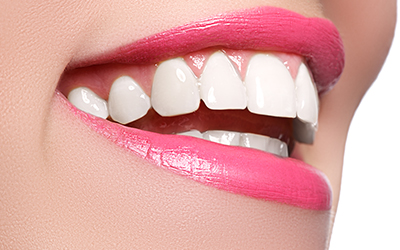Image Credit:
File ID 62548561 | © Alexander Serdechnyy | Dreamstime.com

Many parents wonder if teeth whitening products are safe for their teens. With the rise of social media and image-conscious habits, teens often become interested in achieving a brighter smile. But before purchasing that whitening kit or allowing your child to use strips or gels, it’s essential to understand the potential benefits, risks, and professional recommendations.
Tooth whitening products are generally designed for adults, and their effects on developing teeth are not always well understood. Adolescents’ teeth, especially those not fully matured, have more porous enamel, making them more susceptible to sensitivity and potential damage from over-the-counter whitening agents. If your teen has experienced a toothache Greensboro families commonly report, it could be due to underlying enamel erosion, making whitening an even riskier choice.
Teens may be drawn to whitening products for instant results, but over-the-counter options are not one-size-fits-all. Some key risks include:
Increased tooth sensitivity, especially with peroxide-based treatments.
Enamel erosion, which can lead to long-term dental damage.
Uneven results if your teen has braces or recent dental work.
Irritation of gums from improper application of gels or strips.
If your teen complains of discomfort or you notice signs like white spots or increased sensitivity, it's essential to seek tooth pain relief that Greensboro professionals provide to prevent complications from worsening.
The safest path to a whiter smile often begins with a consultation at a pediatric dental practice. At a center for pediatric dentistry in Greensboro, dentists can evaluate whether whitening is appropriate based on your teen’s oral health, age, and enamel condition. Professional supervision ensures proper technique, minimizes risks and allows for customized treatment plans.
Some teens may not need full whitening procedures at all. Options like professional cleaning or polishing can often remove surface stains and restore brightness without the risks of bleaching products.
All permanent teeth have fully erupted (usually by age 14–16).
Good oral hygiene is consistently maintained.
There are no active cavities or signs of toothache Greensboro issues.
The teen has realistic expectations about the results and limitations.
Pediatric dentists at a center for pediatric dentistry in Greensboro can determine whether your teen is a candidate and recommend safe options tailored to their smile.
Professional cleanings every six months to remove stains and tartar.
Fluoride treatments to strengthen enamel and reduce sensitivity.
Whitening toothpaste approved for teen use, used under supervision.
Dietary changes, such as reducing dark sodas or staining foods like berries and coffee.
Custom-fit trays with low-concentration gels prescribed by a dentist for safer use.
These alternatives not only improve smile brightness but also promote long-term oral health—crucial during the adolescent years.
Before any cosmetic treatment, it’s critical to address underlying dental health concerns. Persistent stains, sensitivity, or tooth pain relief Greensboro concerns may indicate decay, infection, or trauma. Whitening over these issues can mask symptoms and delay necessary care. If your teen has ongoing discomfort, a visit to a provider specializing in toothaches in Greensboro can identify and resolve the root cause.
If your teen is eager to whiten their teeth, have an open conversation about safe practices and realistic outcomes. Partnering with a pediatric dental team ensures your teen's oral development stays on track while also boosting their confidence with a healthy, bright smile.
Above all, prioritize dental visits, maintain strong oral hygiene habits, and rely on expert guidance before beginning any whitening regimen. Teens’ smiles are still growing—let’s protect them while helping them shine.